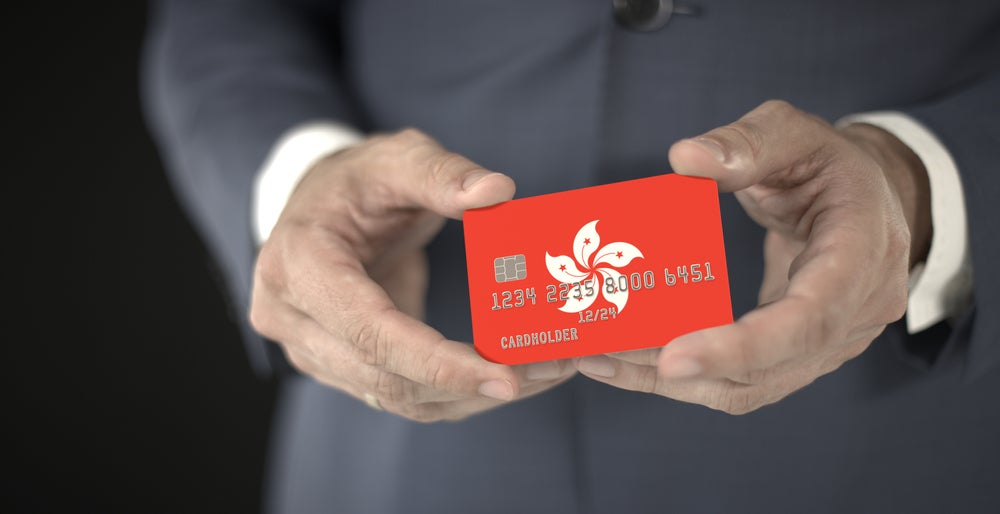In the Asia-Pacific region, Hong Kong represents a stable and
growing consumer lending market, helped by one of the strongest
economies in the world. The Asia-Pacific region has mostly
recovered from the consumer lending default crises that rocked
Taiwan and South Korea a few years ago, and Hong Kong remained
largely immune, which led to increased investment by major card
issuers.
Because of this, Hong Kong remains an attractive region for credit
card issuers, and major multinational institutions such as HSBC,
Citigroup and Standard Chartered have long-established
presences.
It’s not just credit cards that are helping to boost Hong Kong’s
payment industry. The Octopus prepaid contactless scheme is
probably the most successful example of an integrated payment and
transit card programme and has set the template for similar smart
card schemes around the world. Octopus applications have extended
beyond public transport to car parks, fast food outlets,
convenience stores, supermarkets, vending machines, pay phones,
leisure facilities and schools.
The scheme has also been introduced in non-payment uses such as
access control. There are now over 14 million Octopus cards in
circulation, and 95 percent of Hong Kong’s population aged between
16 and 65 possess the card. Every day, more than 10 million
transactions are processed through Octopus, amounting to a total of
$3.7 billion a year.

How well do you really know your competitors?
Access the most comprehensive Company Profiles on the market, powered by GlobalData. Save hours of research. Gain competitive edge.

Thank you!
Your download email will arrive shortly
Not ready to buy yet? Download a free sample
We are confident about the unique quality of our Company Profiles. However, we want you to make the most beneficial decision for your business, so we offer a free sample that you can download by submitting the below form
By GlobalDataThe success of Octopus
The Octopus card scheme is operated by Octopus Holdings, which is
owned by the major transport operators in Hong Kong. Octopus
Holdings also operates Octopus Rewards, a rewards programme
incorporated into the Octopus card scheme.
The programme allows cardholders to earn rewards regardless of the
payment means, and rewards can be redeemed instantly. The
pervasiveness of Octopus cards in Hong Kong, and the inclusion of
Octopus functionality on major issuer credit and debit card
programmes, has significantly boosted uptake and usage of payment
cards in Hong Kong.
Although prepaid cards and store cards existed before the launch of
Octopus, their respective market shares have decreased
significantly. Hong Kong’s small geographical size means that it is
not viable for a retailer to open a sizable outlet network to make
store cards worthwhile. Also, consumers are reluctant to use a card
that is limited to one retailer. The market for prepaid cards is
virtually non-existent, as most consumer needs can be met with the
Octopus card. Also, for shopping and making purchases, credit cards
are the preferred method of payment, given that many in Hong Kong
come with deferred payment or instalment plans.
For this reason, card issuers in Hong Kong are concentrating on
enhancing their credit card programmes and associated benefits and
features, such as rewards programmes. Travel-related rewards
programmes offering air miles are particularly popular and several
issuers have partnered with airlines to capitalise on this trend,
given the increase of outbound travel from Hong Kong.

Saturated card market
Hong Kong has a population of 7 million and is one of the most
mature credit card markets in the Asia-Pacific region. According to
Visa, every household has an average of four credit card accounts.
Over 70 percent of credit card accounts in Hong Kong are
Visa-branded. Visa has 22 member institutions that issue Visa cards
and/or have signed up merchants to accept Visa cards for making
payments in Hong Kong.
Overall, Visa has a market share in Hong Kong of 57 percent, while
MasterCard has 35 percent with American Express, Diners Club and
JCB having 8 percent.
Visa’s dominance in Hong Kong is evidenced by its 2006 figures,
which show that during the 12 months ended June 2006, Hong Kong’s
retail sales volume on Visa cards rose by 11.5 percent to HK$155.9
billion ($20 billion), while Visa card circulation in Hong Kong
increased to 8 million from 7.6 million in 2005.
The number of merchant outlets increased to 83,000. Visa
cardholders made 192.8 million purchase transactions in 2006.
Overall, 18 percent of total consumer spending in Hong Kong was on
Visa cards.
Because of the high rate of card penetration in Hong Kong, issuers
and payment networks are focusing on customer segment-specific
cards, such as premium and platinum cards to target higher-income
consumers. During the 12 months ended September 2005, spending at
point of sale on Visa platinum cards rose over 43 percent to $4.4
billion, and the number of Visa platinum cards issued rose by 28
percent to over 615,000.
The transition to EMV is making good progress – by the end of 2006,
around 1 million Visa EMV chip cards had been issued and over 85
percent of retail terminals capable of accepting chip cards in Hong
Kong had been modified to accept EMV.

Card usage drivers
Growth in transaction values has been helped by the growing travel
and tourism industry, which has seen huge numbers of inbound
travellers to Hong Kong, leading to a rise in international
cardholder spending. Other factors helping to drive credit card
usage is rewards programmes, which are hugely popular, and the
variety of card programmes aimed at different consumer
segments.
Overall, the credit card market is growing at a healthy pace, and
levels of defaults and delinquencies are gradually falling, as
evidenced by the latest statistics from the Hong Kong Monetary
Authority (HKMA).
For the fourth quarter of 2006, total credit card receivables rose
by 11.8 percent from the previous quarter, or HK$7.6 billion, to
HK$72.2 billion, despite a transfer of HK$110 million of
rescheduled receivables representing 0.2 percent of average
receivables outside the credit card portfolio during the quarter.
The increase was largely due to the payment of salary tax using
credit cards and festive spending in December. The total number of
credit card accounts rose further by 0.8 percent to nearly 11
million.
The rollover amount, reflecting the amount of borrowing by
customers using their credit cards, increased to HK$25 billion from
HK$24.9 billion as at the end of September 2006. The charge-off
amount increased in the fourth quarter to HK$0.54 billion or 0.78
percent of average receivables from HK$0.53 billion in the previous
quarter. The increase was mainly attributable to an increase in
bankruptcy-related charge-offs during the quarter, particularly in
November. However, the annualised charge-off ratio dropped to 3.13
percent from 3.30 percent in the previous quarter due to the strong
growth in total card receivables.
Declining delinquency ratio
According to the HKMA, notwithstanding an increase in the
delinquent amount to HK$269 million at the end of December, the
delinquency ratio declined to 0.37 percent due to the increase in
total card receivables. The amount of rescheduled receivables
retained in the card portfolio decreased to HK$52 million or 0.07
percent of total receivables, from HK$55 million or 0.08 percent in
the third quarter.
The combined delinquent and rescheduled ratio declined to 0.44
percent from 0.49 percent at the end of September 2006.
Regulatory initiatives
In December 2006, the HKMA, along with eight credit and debit card
scheme operators, announced the launch of a Code of Practice for
Payment Card Scheme Operators. The code was drawn up by American
Express, China UnionPay, Diners Club International, EPS, JCB
International, Joint Electronic Teller Services, MasterCard
International and Visa International, with the objective of
promoting the safety and efficiency of payment card operations in
Hong Kong and fostering public confidence in payment card
operations.
The code sets out general principles covering, among other things,
operational reliability, data and network security, and the
efficiency and transparency of payment card operations in Hong
Kong. Under the code, all payment card scheme operators will be
required to submit to the HKMA an annual self-assessment of their
compliance with the code and to report to the HKMA any incident
that may have a material and adverse impact on cardholders in Hong
Kong.
The code, which came into force on 1 January 2007, is
non-statutory, and the eight credit and debit card scheme operators
have committed to adopt and comply with the code.
The tourism factor
Hong Kong remains a prime tourist destination, increasingly so for
visitors from mainland China. Over 23 million travellers visited
Hong Kong in 2005, up from 21 million in 2004. Visa says that Hong
Kong has a “tremendous opportunity” to share in the estimated $110
billion that travellers spend when visiting the region.
Visa says that over 20 percent of all tourist spending in the wider
Asia-Pacific region is made using Visa cards.
In August 2006, Visa Asia-Pacific reported that international
travellers to the Asia-Pacific region spent a total of $6.8 billion
on their Visa cards during the first quarter of 2006, a rise of 13
percent compared to the same period a year ago. Visa attributed the
rise in spending to more tourist arrivals and an increase in
issuance of Visa cards across the region. In Asia-Pacific, there
were 287 million Visa cards in circulation in the first quarter of
2006, an increase of 17 percent over the year-ago period.
Of the $6.8 billion spent by tourists on Visa cards, 24 percent was
in the retail sector. Some 52 percent of the $575 million spent on
Visa cards in Hong Kong was in the retail sector, the highest
proportion in the region. Visa said that the influx of mainland
Chinese shoppers into Hong Kong over the Chinese New Year period
contributed to the large amount spent.
Paul Dowling, executive vice-president of corporate relations at
Visa Asia-Pacific, said: “The abundance of high-quality
destinations in Asia-Pacific with some of the world’s best
shopping, recreation and accommodation, coupled with more frequent
flights and destinations covered by low-cost carriers, are all
contributing to the increase in visitor numbers and spending around
the region. Rising airline fuel costs appear not to have deterred
travellers from coming to Asia-Pacific.”
POS transactions dominate, with 88 percent of the total
transactions by international Visa cardholders in Hong Kong being
made in person at the POS. Online transactions accounted for 8
percent of total spend, a figure that has been growing since
2001.

MAJOR PLAYERS
HSBC
HSBC has had a long-established presence in Hong Kong. In 2005, the
bank reported net fee income of HK$8.05 billion, a rise of 7
percent compared to 2004. Fee income from credit cards was HK$435
million, or 20.7 percent higher than in 2004, as the group
maintained its position as the largest card issuer in Hong Kong,
with 4 million cards in force. In the rest of Asia-Pacific, cards
in issue grew by 32.7 percent.
Innovative and targeted promotional campaigns, together with an
enhanced rewards programme, led to increased card spending of
HK$31.3 billion in Hong Kong and the region, and receivables grew
by 30 percent.
The charge for loan impairment increased by HK$54 million to
HK$1,344 million, with higher provisions against credit card
lending in the rest of Asia-Pacific in line with the significant
growth in receivables throughout the region, and a sharp rise in
provisions in Taiwan reflecting higher delinquency levels. In Hong
Kong, however, there were lower provisions in the credit card,
mortgage and other personal lending portfolios, as the economy
continued to recover with falling unemployment, lower bankruptcies
and higher residential property prices.
HSBC’s strategy for growth is centred around expanding and
integrating its card infrastructure with its expertise in regional
credit risk management. The bank is also making efforts to expand
branch-based financing and POS financing.
HSBC has an extensive range of cards on offer on Visa, MasterCard
and JCB networks. The cards come in a range of formats – classic,
gold and platinum, and cards for affluent premier accountholders.
Its iCan Card is aimed at internet shoppers and incorporates
cashback rebates and lifestyle-related benefits such as a rewards
programme, along with the Octopus Automatic Add Value Service
(AAVS), which enables cardholders to collect rewards points when
their cards are reloaded through AAVS.

Standard Chartered
Standard Chartered has 70 branches in Hong Kong, and credit cards
and personal loans currently make up around 30 percent of its
income mix, with the rest coming from mortgage and auto finance and
wealth management. Standard Chartered is now turning its attention
to attracting high-growth and income segments, growing its sales
capacity and expanding distribution channels.
Within Standard Chartered’s credit card and personal loan business,
the bank’s strategic priorities are to protect its revolver base
and expand its transactor segment. It is also seeking to
differentiate its offerings through risk-based pricing.
In March 2006, Standard Chartered launched its first credit card in
Hong Kong on the American Express (Amex) network. The card was the
result of the strategic alliance announced between Standard
Chartered and Amex in August 2005.
The card offers holders two rewards schemes: a bonus points scheme
that offers four times the number of bonus points when making a
purchase, and a cash rewards scheme that earns 1 percent cashback
on all purchases on the card and 8 percent cashback when
cardholders shop at major supermarkets and department stores across
Hong Kong.
Citigroup
Citigroup operates in Hong Kong through its CitiFinancial brand. In
2005, its consumer revenues in Hong Kong were split between cards,
which made up 34 percent of revenues, and retail banking, which
made up 64 percent.
Citi offers 12 cards in Hong Kong, ranging from classic, gold and
platinum cards to segment-specific cards such as the CitBusiness
card, the Axa card which is exclusively for Axa policyholders, the
Citibank Cashback Visa card and the Citibank Ultima card, a premium
card which is invitation-only. Citi also offers the Citibank Cathay
Pacific card, which enables cardholders to earn up to 8,000 air
miles points, and the Citibank Wing On Travel VIP card, which
includes travel privileges and benefits for cardholders.
Other offerings include the Citibank Dual card, enabling
cardholders to get two different cards on one account and to enjoy
double privileges. The Citibank IT Visa card incorporates a 10
percent discount at fashion retailer IT, while the Citibank
renminbi credit card comes with network coverage in mainland China.
Also, Citi offers the Shell Citibank Platinum card, which entitles
cardholders to earn fuel purchase rebates at Shell petrol stations
in Hong Kong and 1 percent cashback on all other spending.
All Citi cards come with the Octopus AAVS functionality. Citi also
offers interest-free instalment plans on its credit cards, and this
is combined with a double rewards points promotion. In August 2006,
Citi introduced an instant credit card issuance service, which
substantially reduces the current card approval cycle from days to
approximately an hour.
Citibank said it is the first and the only bank in Hong Kong that
can provide the service at present. The bank said it is leveraging
credit bureau data, and technology and system enhancement in order
to provide card applicants with cards within one hour.
Others
Other players include Hang Seng Bank, part of HSBC. In its 2006
interim results, Hang Seng reported that credit card advances
recorded growth of 15.2 percent year-on-year, while cards in force
reached 1.32 million, a rise of 3.6 percent over 2005, helped by
the launch of Visa Infinite, an invitation-only premium credit
card. Although the likes of HSBC and Standard Chartered dominate,
Asian lenders are also making inroads into Hong Kong. Another Hong
Kong lender, Dah Sing, has a smaller market presence but has one of
the widest ranges of cards on offer, including credit, lifestyle,
gift and business cards. One of its most recent launches was the
Manchester United MasterCard card, aimed at tapping into the
popularity of the UK soccer club in Hong Kong. All Dah Sing cards
come with a range of rewards programmes and Octopus AAVS.
Singapore-headquartered DBS has 10 percent credit card market share
in Hong Kong and has cited Hong Kong as a prime growth market, as
has United Overseas Bank (UOB), which similar to Dah Sing has on
offer a distinct range of lifestyle-orientated credit cards. In
January 2007, UOB teamed with Asiana Airlines to launch the Asiana
UOB Visa Infinite and Platinum Elite cards, incorporating high-end
travel-related benefits for cardholders.







